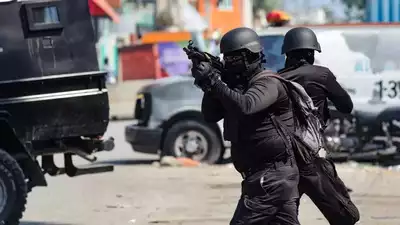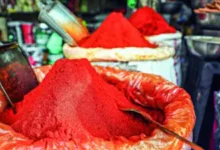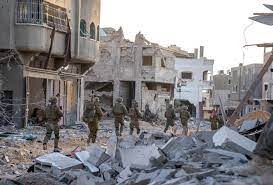According to a UN expert, Haiti now needs up to 5,000 police to assist combat “catastrophic” gang violence
UNITED NATIONS: The UN rights specialist for the conflict-ridden Caribbean country said on Thursday that Haiti now needs between 4,000 and 5,000 foreign police to assist in combating “catastrophic” gang violence that is targeting important persons as well as hospitals, schools, banks, and other vital institutions.UN

William O’Neill said in July of last year that Haiti needs between 1,000 and 2,000 foreign police officers with gang-fighting experience.
He said that today’s circumstances are so dire that the Haitian National Police needs twice as many officers as before in order to assist them in regaining control of the situation and stopping violations of human rights.
At a press conference to introduce a report from the UN Human Rights Office that he co-wrote, O’Neill called for immediate action to address the “cataclysmic” situation in Haiti, where gang violence, impunity, corruption, and poor governance have eroded the rule of law and brought state institutions “close to collapse.”
According to the research, which covered the five months that ended in February, gangs are still recruiting and abusing both boys and girls, and some of the victims have even lost their lives attempting to flee.
According to the research, gangs still use sexual violence as a means of “brutalising, punishing, and controlling people.” It included incidents of women who were raped by gangs in their neighbourhoods, often after seeing their husbands being slaughtered in front of them.
According to the research, there was a considerable rise in the number of individuals murdered and wounded due to gang violence in 2023, with 4,451 deaths and 1,668 injuries. And as of March 22 of this year, the figures had risen to 1,554 fatalities and 826 injuries.
So-called “self-defence brigades” have taken matters into their own hands due to the rising gang violence, and as a consequence, the study said that “at least 528 cases of lynching were reported in 2023 and a further 59 in 2024.”
The rapid deployment of a multinational security operation to assist Haiti’s police in putting an end to the violence and reestablishing the rule of law was stressed in the human rights report. Additionally, it called for stricter international and national regulations to stop the trafficking of firearms and ammunition, mostly from the United States, to gangs and other criminal organisations.
The “alarming” targeting of important institutions and individuals, according to O’Neill, who was appointed by the UN human rights chief based in Geneva, started in the last four or five weeks, with 18 documented attacks on hospitals, attacks on schools, including one that was set on fire three days ago, and a fire on Wednesday night at one of Haiti’s most prestigious academic institutions. The two largest jails in Haiti have also been overrun by gangs.
He said that gangs had attempted twice to seize the National Palace and that they are going after journalists, human rights advocates, and everyone else they see as a danger to their ability to maintain control over the area.
O’Neill said that a recent development seen by the UN human rights team in Haiti is the increasing involvement of young teens in frontline operations and attacks, in addition to their traditional roles as cooks, lookouts, couriers, and sex slaves.
A starvation of around 1.4 million Haitians is also a result of the shutdown of the airport and roadways. Additionally, the UN International Organisation for Migration reports that the number of people leaving their homes has climbed from 50,000 in July of last year to at least 362,000. “Given the last three to four weeks, we’re probably close to 400,000, if not over that,” the UN envoy said.
Restoring security is essential, according to O’Neill, and it is imperative that the international security force be sent to Haiti immediately.
It is also “crucial” and “absolutely vital” to have the interim presidential council formally established and functioning, according to O’Neill, who expressed optimism that this may happen as soon as next week. The UN expert said that, among other reasons, President William Ruto of Kenya has stated he would not send police to oversee the international security operation unless he has a counterpart from Haiti.
O’Neill said that money is also urgently needed for the trust fund that would support the global police operation.
In order to fight gangs, Haiti requested an international force in October 2022, and UN Secretary-General Antonio Guterres made a force appeal in July of last year, he added.
“We’re not done yet, and each day that passes means more people lose their lives, get sexually assaulted by women and girls, and escape their homes,” O’Neill said. Thus, it is best to act quickly.







